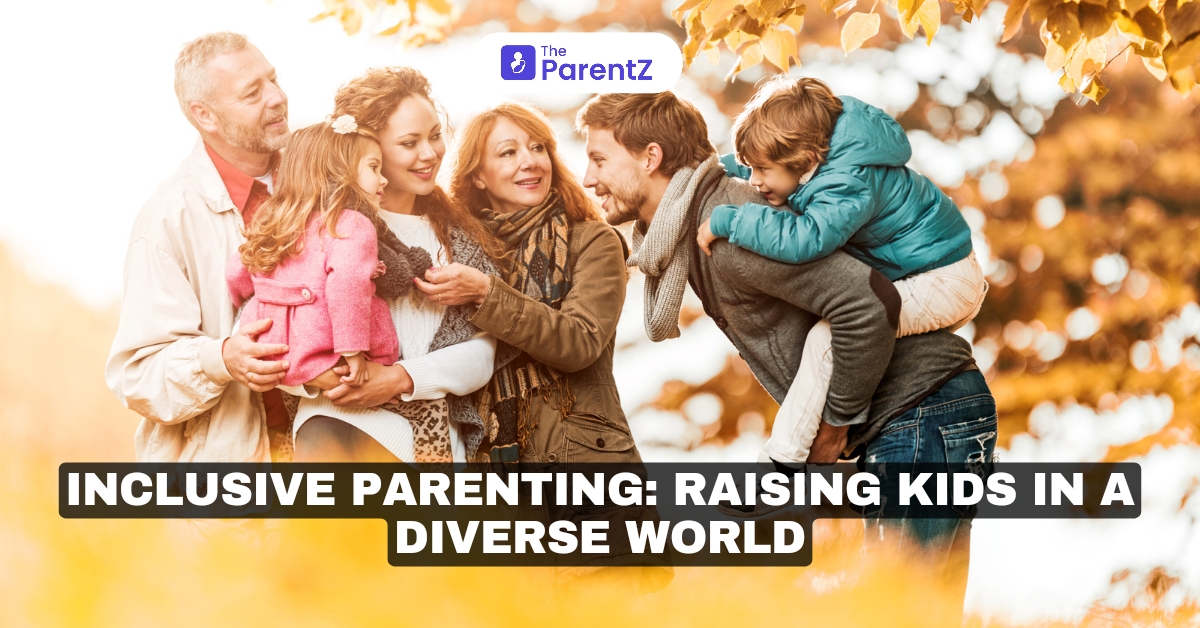In an increasingly diverse world, inclusive parenting has become essential for raising children who are open-minded, empathetic, and respectful of differences. Inclusive parenting involves teaching children to appreciate diversity in all its forms—whether it be race, ethnicity, gender, religion, ability, or sexual orientation. By fostering an environment of inclusivity at home, parents can equip their children with the tools they need to thrive in a multicultural society and contribute to a more equitable world. This article explores the principles of inclusive parenting and provides practical strategies for raising children who value diversity.
The Importance of Inclusive Parenting
Inclusive parenting is crucial for several reasons:
- Promotes Empathy and Compassion: Children raised in an inclusive environment are more likely to develop empathy and compassion for others. They learn to see the world from different perspectives and understand the experiences of those who may be different from them.
- Prevents Prejudice and Discrimination: By exposing children to diversity from a young age, parents can help prevent the development of prejudice and discrimination. Inclusive parenting teaches children to appreciate differences rather than fear them.
- Prepares Children for a Global Society: In today's interconnected world, children will inevitably interact with people from diverse backgrounds. Inclusive parenting prepares them to navigate these interactions with respect and understanding.
Principles of Inclusive Parenting
Inclusive parenting is guided by several key principles:
- Celebrating Diversity: Inclusive parenting involves actively celebrating diversity in all its forms. This means exposing children to a wide range of cultures, traditions, and perspectives, and teaching them to value these differences.
- Promoting Equality: Inclusive parenting is about promoting equality and challenging stereotypes. Parents should encourage their children to question unfair treatment and advocate for equal rights and opportunities for all.
- Encouraging Open Dialogue: Open dialogue is essential for inclusive parenting. Children should feel comfortable discussing topics related to diversity, such as race, gender, and identity, and parents should be prepared to answer their questions honestly and thoughtfully.
- Modeling Inclusive Behavior: Children learn by example, so it's important for parents to model inclusive behavior in their own lives. This includes showing respect for others, challenging stereotypes, and standing up against discrimination.
Strategies for Raising Inclusive Children
- Expose Children to Diverse Books and Media: One of the easiest ways to introduce children to diversity is through books, movies, and television shows that feature diverse characters and stories. Choose media that represents a variety of cultures, languages, and family structures, and discuss these with your children.
- Encourage Diverse Friendships: Encourage your children to form friendships with peers from different backgrounds. This can be facilitated by participating in diverse community activities, enrolling in multicultural programs, or simply being open to different social circles.
- Teach Respectful Language: Language plays a crucial role in shaping attitudes towards others. Teach your children to use respectful and inclusive language, avoiding terms that may be offensive or perpetuate stereotypes.
- Celebrate Cultural Traditions: Participate in cultural celebrations and traditions from various communities. This can include attending festivals, trying foods from different cultures, or learning about holidays and customs from around the world.
- Discuss Stereotypes and Bias: Have open discussions with your children about stereotypes and biases. Help them understand how these can lead to discrimination and encourage them to think critically about the messages they receive from society.
- Advocate for Inclusivity: Encourage your children to be advocates for inclusivity in their schools and communities. This can involve supporting initiatives that promote diversity, standing up against bullying or exclusion, and participating in activities that foster inclusivity.
- Educate Yourself: As a parent, it's important to continuously educate yourself about issues related to diversity and inclusivity. This will help you provide informed guidance to your children and address any questions or concerns they may have.
The Role of Schools and Communities
Schools and communities play a vital role in supporting inclusive parenting:
- Inclusive Curriculum: Schools should offer a curriculum that reflects the diversity of the world, including the contributions of different cultures, histories, and perspectives. This helps children appreciate the richness of diversity and understand its importance.
- Anti-Bullying Policies: Schools should have clear anti-bullying policies that address discrimination and promote a safe and inclusive environment for all students. Parents can work with schools to ensure these policies are effectively implemented.
- Community Programs: Community programs that promote cultural exchange, social justice, and diversity can provide valuable opportunities for children to learn about and engage with different cultures. Parents should seek out and participate in these programs with their children.
Conclusion
Inclusive parenting is about raising children who are respectful, empathetic, and open-minded in a diverse world. By celebrating diversity, promoting equality, and encouraging open dialogue, parents can help their children develop the skills and attitudes needed to thrive in a multicultural society. Through the strategies outlined in this article, parents can create an inclusive environment at home and contribute to building a more just and equitable world for future generations.





Be the first one to comment on this story.